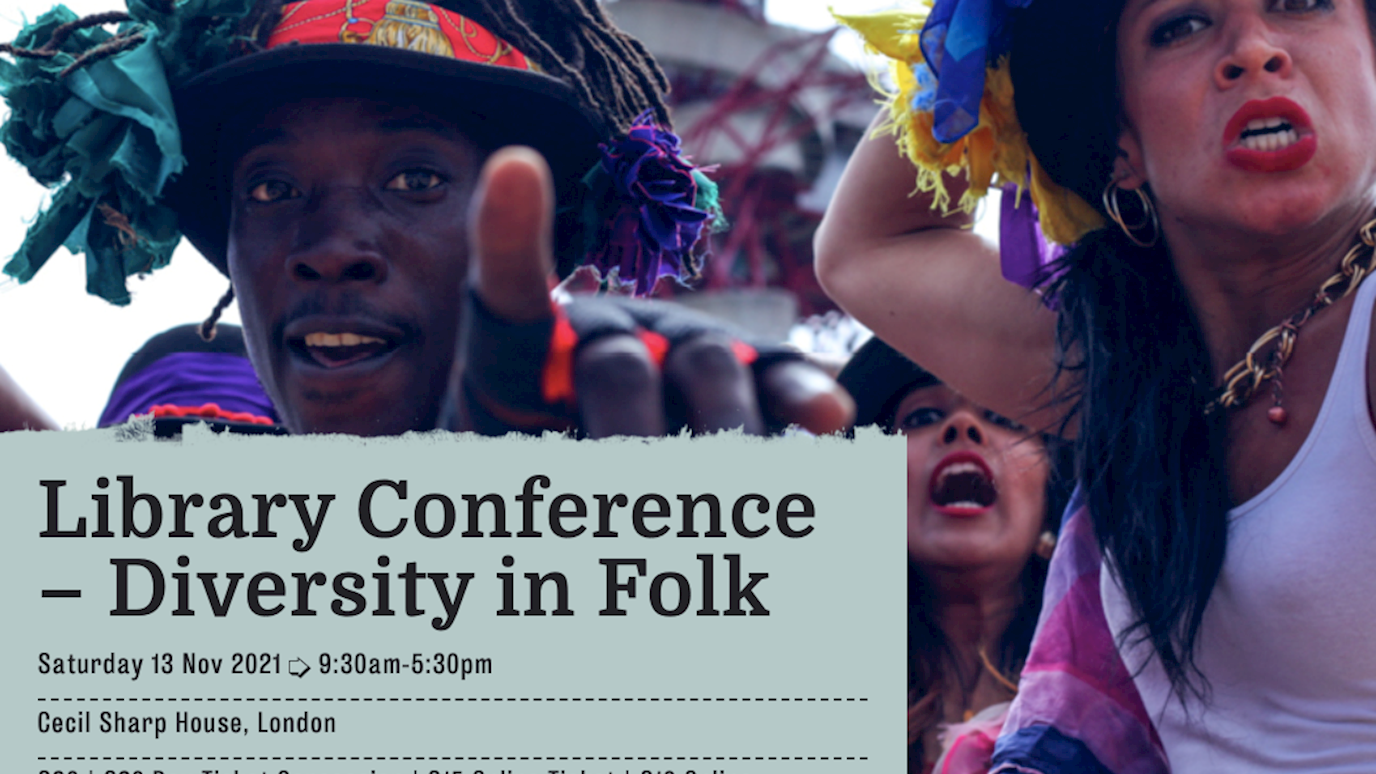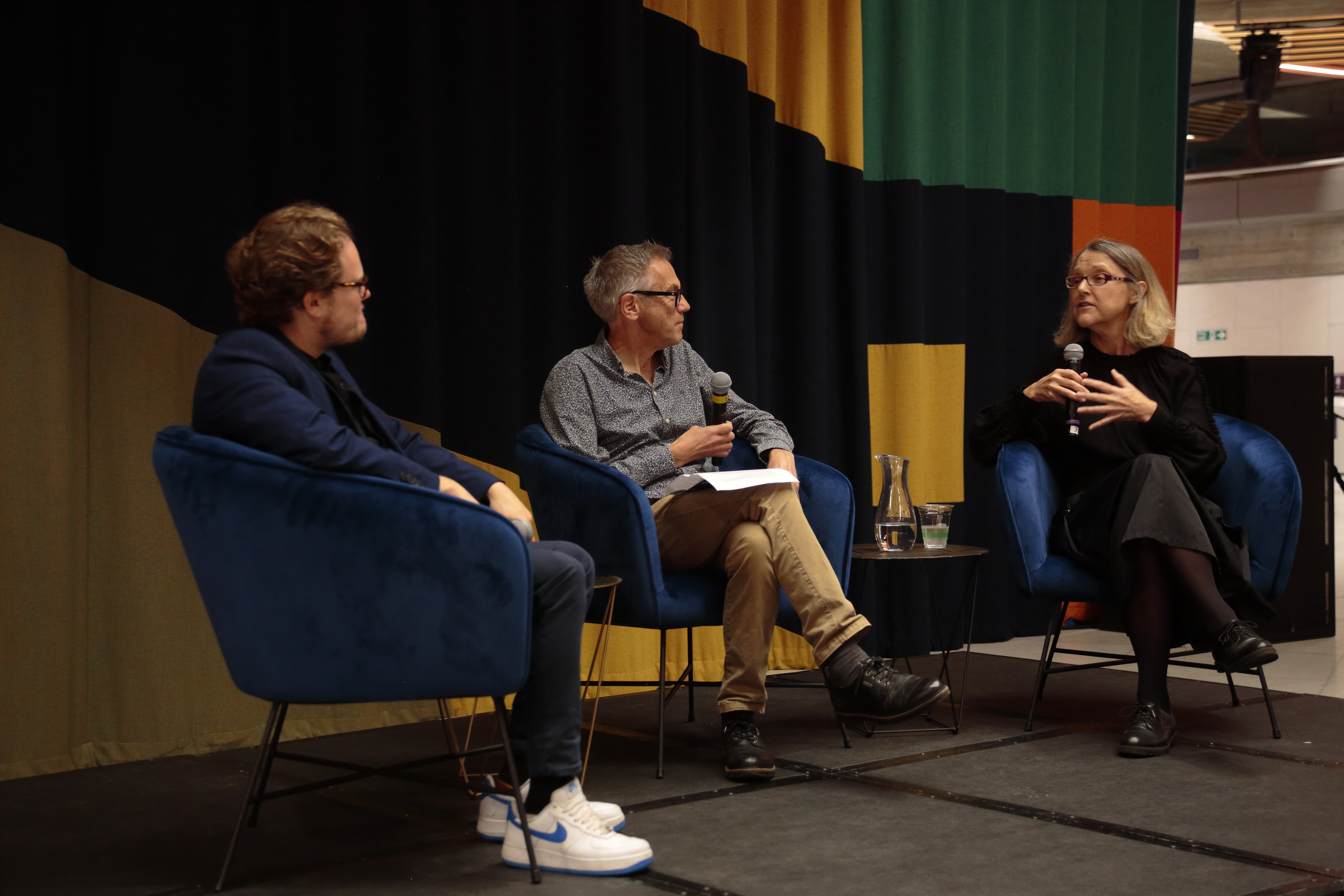Tina K. Ramnarine, Professor of Music, has been working on a vital new project, 'Decolonising Folk'.

'Diversity in Folk' conference, Cecil Sharp House
Tina K. Ramnarine, who is Professor of Music at Royal Holloway, delivered a keynote lecture on ‘Transnational folk’ for the 2021 Vaughan Williams Memorial Library Conference on ‘Diversity in Folk’. Her lecture began by asking: ‘What does diversity in folk mean?’ She noted that throughout most of the 20th century, compilations and studies of folk music were predicated on conservation of the peasantry, rejection of urban expressions, and distinctions between folk, art and popular genres. She discussed how a major preoccupation had been thinking nationally about folk music. For example, Ralph Vaughan Williams and Albert L. Lloyd’s The Penguin Book of English Folk Songs (published in 1959) became an important text for mid-20th century folk revivalists in England, who were concerned about national materials, especially about their neglect due to transnational musical circulations.
She suggested that a 21st-century discourse on diversity in folk emerges from and is complicated by 20th –century ideas about the national. Turning to the transnational is a way of emphasising interactions and connections, and generating new ways of analysing folk music. Thus, Professor Ramnarine drew on historical and contemporary examples across national, colonial, multicultural, and institutional contexts to show how they can be understood as transnational practices. The lecture ideally framed the day’s discussions. Other presentations likewise analysed English folk music transnationally with topics such as: ‘The black origins of sea shanties’, ‘International relations: nationalism and internationalism in the English folk dance revival’, ‘How to increase and diversify participation in English Folk Clubs?’, and ‘The Sorrow Songs: Folk Songs of Black British Experience’. Such topics broaden our understanding of folk music. Tina K. Ramnarine has been working on these topics in various folk contexts, especially in relation to the Nordic region, which resulted in her book Ilmatar’s Inspirations: Nationalism, Globalization, and the Changing Soundscapes of Finnish Folk Music (published by Chicago University Press in 2003).
The conference discussions paralleled undergraduate student interests within a project that Professor Ramnarine had directed earlier on ‘Decolonising Folk’, which aimed to highlight the transnational aspects of folk music. Student participants held broad experience as performers of folk traditions across Derbyshire, Oxfordshire, Yorkshire, as well as the Caribbean and South East Asia. The project led to three third-year dissertations currently being written on Chinese orchestras in Singapore, Riverdance and Irish traditional music, and the contemporary cultural relevance of sea shanties.
























